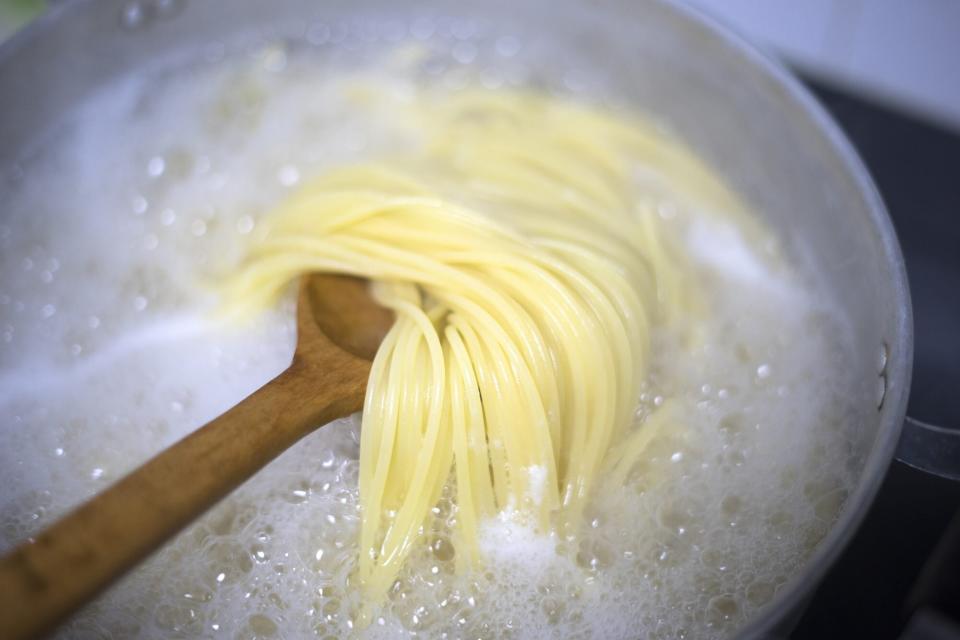The Old-School Kitchen Utensil That Magically Keeps Water From Boiling Over
People might say that a watched pot never boils, but we'd argue that an unwatched pot is what really needs attention—it has a tendency to boil over. One second you're innocently washing dishes, and next, you're running over to a steaming stovetop. Even if you manage to sprint across the kitchen in time, the unwatched pot doesn't necessarily calm down right away—causing you to scoop boiling water out before it overflows.

skaman306 / Getty Images
If that scene sounds familiar, it might be time to learn an old kitchen trick that stops boiling water from quickly overflowing on the stovetop. It's simple but can help postpone a surprise stovetop mess in the heat of the moment. All you need is your trusty wooden mixing spoon.
Use a Wooden Spoon
If you lay a wooden spoon across the top of the pot of boiling water, the water will not boil over. It might seem silly, but we don't make the rules. Place the spoon lengthwise (laying down) across the diameter of the open pot, and it'll repel the bubbles, at least long enough to turn down the heat—and some claim that it even works way longer.
Why does this happen? The answer is two-fold. Firstly, the wood acts as a water repellant on the already-unstable bubbles. As a result, it causes them to destabilize and stop rising. Secondly, the spoon is at a cooler temperature than the water and bubbles, so when the bubbles meet the spoon, the steam condenses back into the water.
While you can find many varying opinions online and in comment sections, the largest consensus agrees that this method does what it claims, at least to a degree or barring any setbacks (faulty spoon or incredibly high heat). Some testers even note that it kept bubbles at bay for minutes, even when keeping the pot on high heat.
Other Ways To Stop Water From Boiling Over
Use Less Water
This tip might seem counterintuitive since your objective is to boil enough water to fill your pot. However, adding less water can help determine how fast your water will come to a boil—hopefully not boiling over. You can always add more water once the pot reaches its boiling point, so keep this in mind.
Salt the Water
If you are cooking pasta, salt your water before adding anything else. Salting the water is the only opportunity you have to add flavor directly to the pasta, and it will also help manage the water's boiling temperature. With more salt, the water will not bubble as high.
Use a Silicone Stopper
Silicone stoppers are preferable to pot lids because it safely aerates the boiling water, letting pressure and steam out without letting it bubble over the sides. The stopper adheres to the top of the pot, so make sure to buy one that matches the diameter of the pot you intend to use. A silicone stopper can also be a splatter guard when frying or as a microwave cover. Make sure to check the temperature limits and instructions on your specific stopper.
Just like mayonnaise is the only thing needed on a tomato sandwich, sometimes the simplest answer is the correct one. Just make sure to keep your old-school wooden spoon beside the stovetop, and you'll be able to jump into action whenever your pasta, eggs, potatoes, or butter beans start to boil over. Per your new kitchen trick, you'll undoubtedly use a wooden spoon for more than just mixing.

 Yahoo Autos
Yahoo Autos 